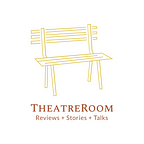German Spotlight 2024: Kavya Srinivasan-directed The Golden Dragon sees migrant workers landing in the soup
Helmed by Kavya Srinivasan, the dramatised reading of Roland Schimmelpfennig’s The Golden Dragon is taking place on March 30, as part of Sandbox Collective and Goethe-Institut/Max Mueller Bhavan Bangalore’s programme German Spotlight
Reema Gowalla
German theatre director and playwright Roland Schimmelpfennig’s acclaimed work The Golden Dragon (Der Golden Drache) is set to feature in the fourth and last rehearsed reading of German Spotlight 2024, and director Kavya Srinivasan aims at making it a sensory experience for the audience. First published in 2011, the play is set inside the chaotic kitchen of a Thai-Chinese-Vietnamese restaurant, called The Golden Dragon. The story is focussed on the Chinese immigrants who are often found to inhabit such spaces. This year marks the ninth edition of German Spotlight — an annual cultural exchange programme between Sandbox Collective and Goethe-Institut/Max Mueller Bhavan Bangalore.
Scheduled to take place on March 30, The Golden Dragon is at once a comedy, a tragedy and a social commentary on Asian immigrants in Europe and elsewhere in the world. The play follows the workers of The Golden Dragon. The narrative is all about the misadventures of traversing a foreign land. It documents “each character’s emotional journey, presenting a hard-hitting picture of illegal immigrants’ daily lives”. The cast includes actors Honey Raza, Jimmy Xavier and Sachin Ravindran, who also doubles as a musician in the play.
Describing the piece as ‘fantastic text’, Kavya tells TheatreRoom, “Essentially, The Golden Dragon is the name of a Thai-Vietnamese restaurant, but you don’t really know where the outlet is located. I’ve assumed that it’s somewhere in Germany, because of the writer and context. The plot is centred on how Asian immigrants navigate foreign lands. Interestingly, a lot of these experiences and the manner in which these are portrayed echo what we hear about Indian construction workers in the Gulf; many of the themes are similar. Thus, you’ll realise that the story of immigration is almost the same everywhere. You travel to a different place, and then you’re navigating, creating, struggling, surviving and trying to understand the language, bureaucracy and paperwork.”
According to the director, the play traces a bunch of workers at an Asian restaurant in a foreign country. “Then suddenly, one of them suffers a toothache, and that forms the first principle premise of the play. Later, you hear a little bit about each performer. Parallelly, there’s some really beautiful stuff happening, thanks to the nonlinear narrative. The story follows the lives of the people who are in and around the eatery. It looks into the life of a person who stays in an apartment above the restaurant, while there’s also something about two patrons who often visit The Golden Dragon.”
Although the duration of the original play is about 95 minutes, Kavya has reimagined the piece to fit into a 40-minute runtime. Apart from what’s happening inside the kitchen and the people living around the restaurant, her version of the play concentrates on this young man who has a toothache. The other characters try to pull out the hurting tooth, but unfortunately it lands in a soup bowl. Meanwhile, one of Aesop’s popular fables The Ant and the Grasshopper is also woven into the text. The way these aspects are depicted in the play makes it both comical and tragic, not driving away from the underlying seriousness of the theme of displacement and immigration, of course.
Together with the restaurant’s chaotic energy, elements of the classic fable and even magical realism, there is also music which Kavya considers a significant part of the play. “Sachin is a fantastic musician. His tunes will lend a sense of otherworldliness to the play. Layered with different instruments, his music adds more depth to the text. For me, the auditory experience is of great value to the reading,” she elaborates.
Keeping in tune with the vibe of oriental food, the audience will also be served some food as the rehearsed reading goes on. “When my partner (Robin Joe) and I were mulling over what else could elevate the experience on stage, I was very clear I didn’t want another visual element. Hopefully, the food thing will add to the sensory affair — you are listening to this play about a restaurant, there is music and something to munch on too. It’s very much in the realm of all the other senses except the eyes,” Kavya sums up.
German Spotlight 2024 kickstarted on March 9 with Karthik Hebbar-directed The Sexual Neuroses of Our Parents, written by Lukas Bärfuss. This was followed by Gotthold Ephraim Lessing’s Philotas (directed by Kafeel Jafri) and Dea Loher’s Innocence (directed by Priyanka Chandrasekhar).
Catch the dramatised reading of The Golden Dragon on March 30 (6.30pm) at the Goethe-Institut/Max Mueller Bhavan Bangalore.
